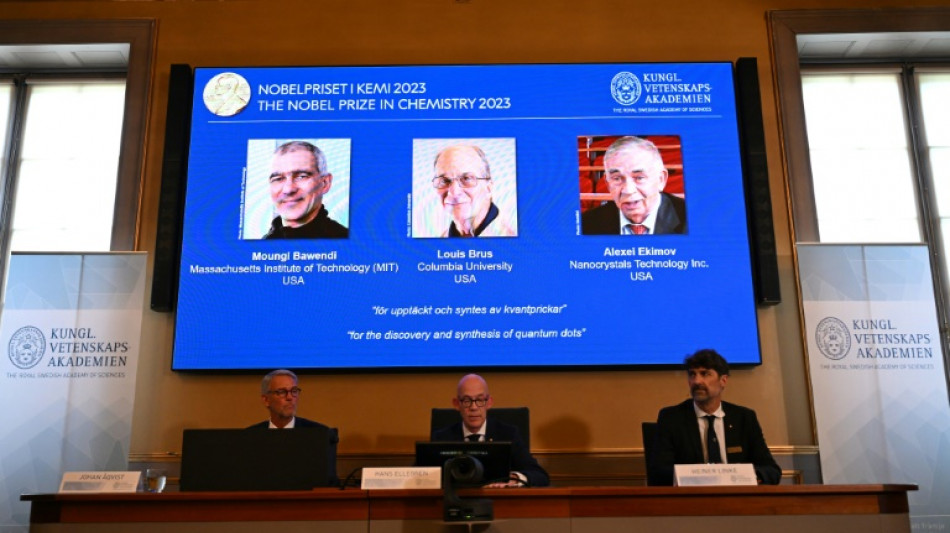
-
 From the Andes to Darfur: Colombians lured to Sudan's killing fields
From the Andes to Darfur: Colombians lured to Sudan's killing fields
-
Eagles win division as Commanders clash descends into brawl

-
 US again seizes oil tanker off coast of Venezuela
US again seizes oil tanker off coast of Venezuela
-
New Zealand 35-0, lead by 190, after racing through West Indies tail

-
 West Indies 420 all out to trail New Zealand by 155
West Indies 420 all out to trail New Zealand by 155
-
Arteta tells leaders Arsenal to 'learn' while winning

-
 Honour to match idol Ronaldo's Real Madrid calendar year goal record: Mbappe
Honour to match idol Ronaldo's Real Madrid calendar year goal record: Mbappe
-
Dupont helps Toulouse bounce back in Top 14 after turbulent week

-
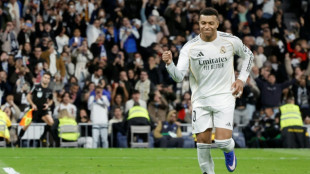 Mbappe matches Ronaldo record as Real Madrid beat Sevilla
Mbappe matches Ronaldo record as Real Madrid beat Sevilla
-
Gyokeres ends drought to gift Arsenal top spot for Christmas

-
 Arsenal stay top despite Man City win, Liverpool beat nine-man Spurs
Arsenal stay top despite Man City win, Liverpool beat nine-man Spurs
-
US intercepts oil tanker off coast of Venezuela

-
 PSG cruise past fifth-tier Fontenay in French Cup
PSG cruise past fifth-tier Fontenay in French Cup
-
Isak injury leaves Slot counting cost of Liverpool win at Spurs

-
 Juve beat Roma to close in on Serie A leaders Inter
Juve beat Roma to close in on Serie A leaders Inter
-
US intercepts oil tanker off coast of Venezuela: US media

-
 Haaland sends Man City top, Liverpool beat nine-man Spurs
Haaland sends Man City top, Liverpool beat nine-man Spurs
-
Epstein victims, lawmakers criticize partial release and redactions

-
 Leverkusen beat Leipzig to move third in Bundesliga
Leverkusen beat Leipzig to move third in Bundesliga
-
Lakers guard Smart fined $35,000 for swearing at refs

-
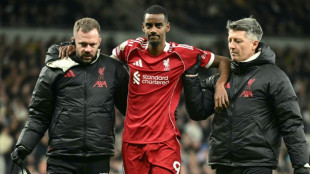 Liverpool sink nine-man Spurs but Isak limps off after rare goal
Liverpool sink nine-man Spurs but Isak limps off after rare goal
-
Guardiola urges Man City to 'improve' after dispatching West Ham
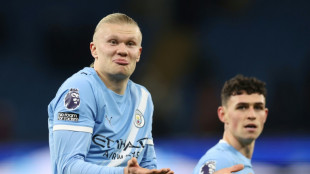
-
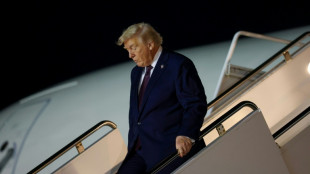 Syria monitor says US strikes killed at least five IS members
Syria monitor says US strikes killed at least five IS members
-
Australia stops in silence for Bondi Beach shooting victims

-
 Olympic champion Joseph helps Perpignan to first Top 14 win despite red card
Olympic champion Joseph helps Perpignan to first Top 14 win despite red card
-
Zelensky says US mooted direct Ukraine-Russia talks on ending war
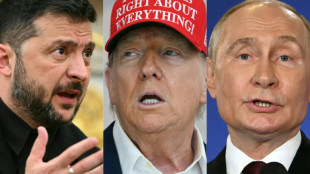
-
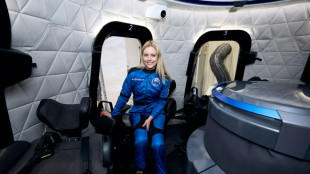 Wheelchair user flies into space, a first
Wheelchair user flies into space, a first
-
Brazil's Lula, Argentina's Milei clash over Venezuela at Mercosur summit
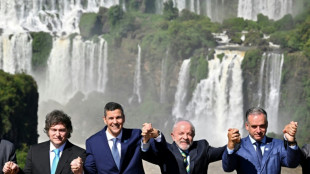
-
 Haaland sends Man City top, Chelsea fightback frustrates Newcastle
Haaland sends Man City top, Chelsea fightback frustrates Newcastle
-
Thailand on top at SEA Games clouded by border conflict

-
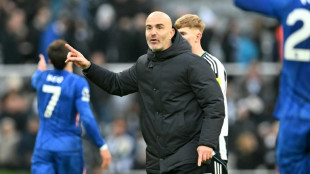 Chelsea chaos not a distraction for Maresca
Chelsea chaos not a distraction for Maresca
-
Brazil's Lula asks EU to show 'courage' and sign Mercosur trade deal
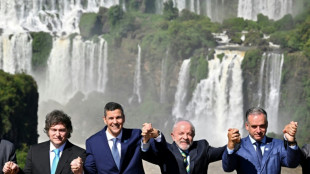
-
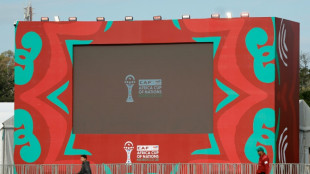 Africa Cup of Nations to be held every four years after 2028 edition
Africa Cup of Nations to be held every four years after 2028 edition
-
Zelensky says US mooted direct Ukraine-Russia talks on ending war in Miami
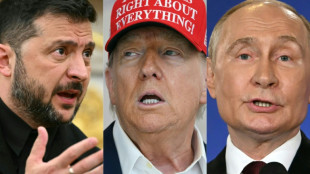
-
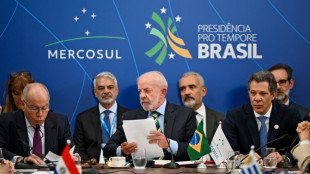 Armed conflict in Venezuela would be 'humanitarian catastrophe': Lula
Armed conflict in Venezuela would be 'humanitarian catastrophe': Lula
-
Chelsea fightback in Newcastle draw eases pressure on Maresca

-
 FIFA Best XI 'a joke' rages Flick over Raphinha snub
FIFA Best XI 'a joke' rages Flick over Raphinha snub
-
Swiss Von Allmen pips Odermatt to Val Gardena downhill
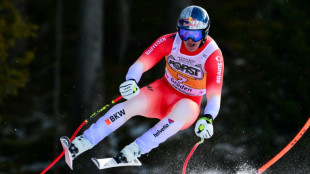
-
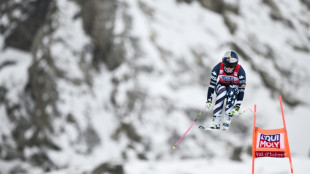 Vonn claims third podium of the season at Val d'Isere
Vonn claims third podium of the season at Val d'Isere
-
India drops Shubman Gill from T20 World Cup squad
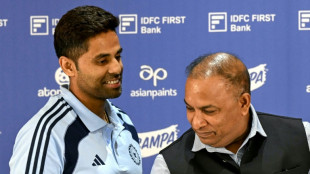
-
 Tens of thousands attend funeral of killed Bangladesh student leader
Tens of thousands attend funeral of killed Bangladesh student leader
-
England 'flat' as Crawley admits Australia a better side
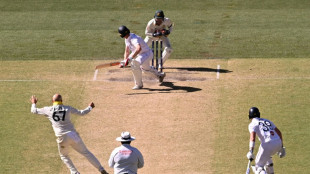
-
 Australia four wickets from Ashes glory as England cling on
Australia four wickets from Ashes glory as England cling on
-
Beetles block mining of Europe's biggest rare earths deposit

-
 French culture boss accused of mass drinks spiking to humiliate women
French culture boss accused of mass drinks spiking to humiliate women
-
Burning effigy, bamboo crafts at once-a-decade Hong Kong festival

-
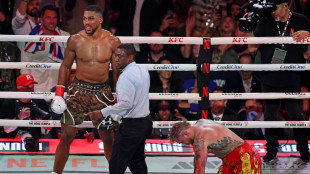 Joshua knocks out Paul to win Netflix boxing bout
Joshua knocks out Paul to win Netflix boxing bout
-
Dogged Hodge ton sees West Indies save follow-on against New Zealand

-
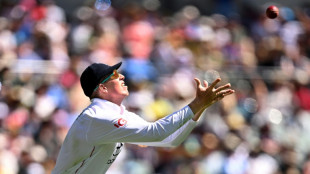 England dig in as they chase a record 435 to keep Ashes alive
England dig in as they chase a record 435 to keep Ashes alive
-
Wembanyama 26-point bench cameo takes Spurs to Hawks win


Three giants of chemistry connected by the quantum realm
This year's Nobel Chemistry winners are pioneers in the nanoworld.
During the 1980s, Alexi Ekimov, 78, and Louis Brus, 80, working independently and on opposite sides of the Iron Curtain, succeeding in creating "quantum dots" -- nanoparticles that are found today in next generation TV screens and are being used to illuminate tumors in the body.
A decade later, 62-year-old Moungi Bawendi revolutionized methods to manufacture them with precision and at scale, paving the way for their applications.
Here's the rundown on the 2023 Nobel Prize in Chemistry winners.
- Perseverance -
Bawendi was born in 1961 in Paris, France to a Tunisian father and French mother.
His family emigrated to the United States when he was 10 years old, and though he excelled at science in high school, he flunked his very first college chemistry class at Harvard.
"It could easily have destroyed me, my first experience with an F, the lowest grade in my class by far," he told reporters.
But he persevered, earning his undergraduate degree and later his PhD at the University of Chicago. He would later join Brus at Bell Laboratories, then finally the Massachusetts Institute of Technology (MIT), where he remains today as a professor.
"I'm especially honored to share this with Louis Brus, who was my postdoctoral mentor... I tried to emulate his scholarship and mentoring style as a professor myself," he said.
Bawendi built upon the work of his co-laureates and in 1993 succeeded in vastly improving the methods to create quantum dots, finding just the right solvent and temperature to grow nanocrystals to specific sizes.
- Colored glass experiments -
Ekimov and Brus grew up in the post-war era. Ekimov was born in 1945 in the former USSR, and graduated from Leningrad State University.
Ekimov was fascinated by colored glass and the fact that a single substance could yield many colors. By experimenting with temperatures and heating times of molten glass, he found he was able to vary the size of the particles produced and that the smaller the particles were, the bluer the light they emitted.
He published his findings in a Soviet science journal 1981, and was the first person to intentionally create quantum dots -- particles predicted by physics theory in the early 20th century but not until then demonstrated in reality.
At the same time, Brus worked at the legendary Bell Laboratories in the United States -- then a hotbed for scientific discovery -- on experiments that involved chopping up particles to provide a larger surface area and faster chemical reactions.
During his work, he noticed that the particles' optical and other properties shifted the smaller they became, something that could only be explained by quantum mechanics.
- Sputnik generation -
"I am a member of the Sputnik generation, raised after WWII as the United States dramatically expanded science and technology in response to the Cold War" he wrote in an autobiographical account after receiving the 2008 Kavli Prize.
Gifted from an early age in mathematics and science, he grew up in the suburbs of Kansas City, where he says he "developed an affinity for tools and machines by working after school and on weekends in the local hardware store."
He initially thought he would follow his father into business. But after receiving his doctorate in 1969 from Columbia University in New York, he served in the United States Navy, and became a researcher in a laboratory in Washington.
Then, in 1972, he began working for Bell Labs, where he remained for 23 years.
He is now a professor at Columbia University and a firm believer in the power of science.
"Scientists struggle daily with their experiments, and tend to lose sight of the enormous collective progress of science and technology over the decades," he wrote.
"Science has created a far better existence for mankind despite war, economic collapse and natural disaster."
P.Costa--AMWN



